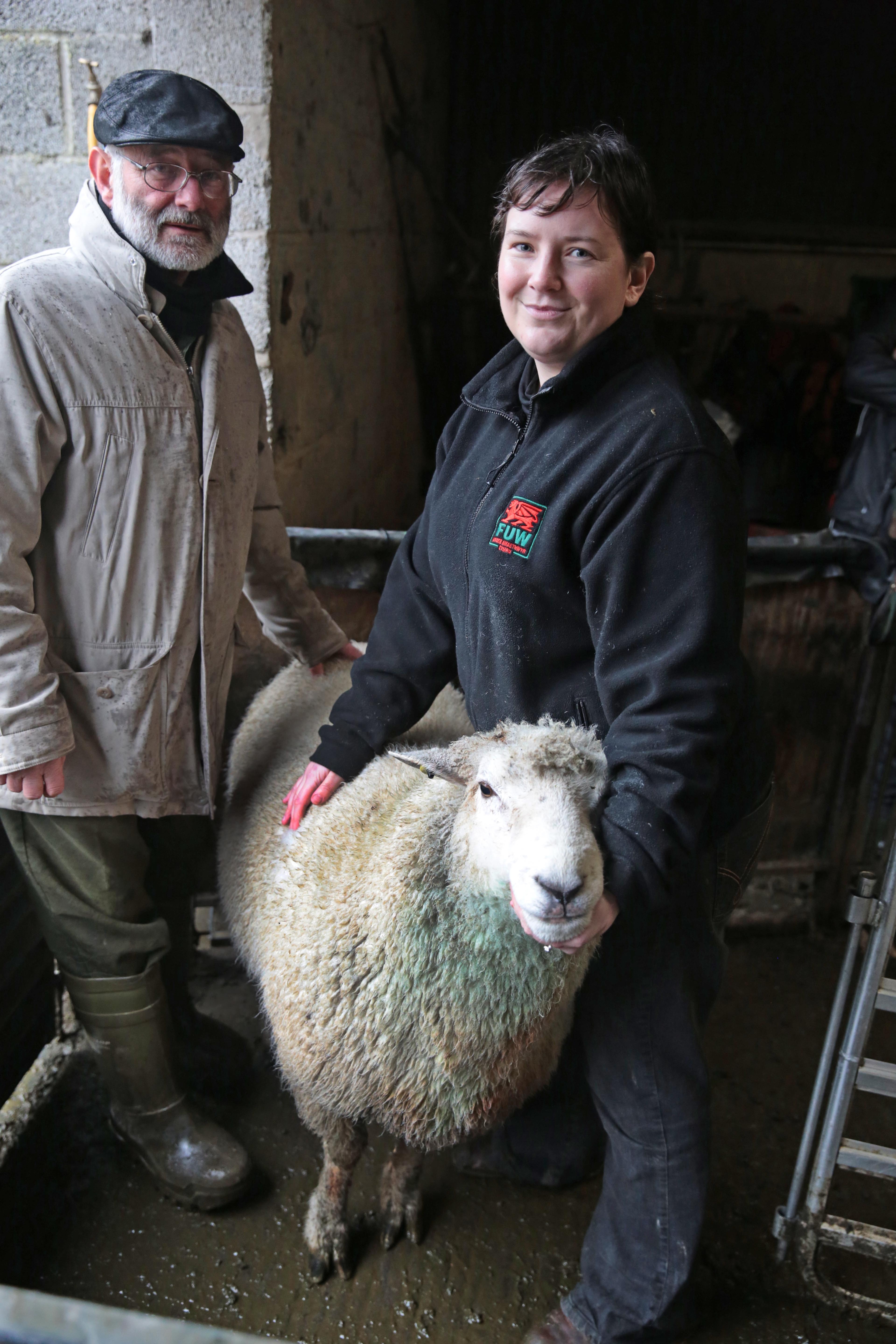
Improving the efficiency of lamb production was the main topic of discussion during a Farmers’ Union of Wales-organised visit to independent sheep consultant Catherine Nakielny’s Carmarthenshire family farm.
Dr Nakielny, of KN Consulting, farms 800 ewes at her home at Talley, near Llandeilo. She previously worked for a commercial sheep breeding company and various industry consultants following her studies at Aberystwyth University where she completed an Animal Science BSc and PhD on Breeding Sheep for Resistance to Roundworms.
A Nuffield Scholar, she is chairman of the FUW's animal health and welfare committee, the union's Carmarthenshire county chairman, sits on the NSA Welsh committee and represents Wales on the NSA UK policy and technical committee.
She is also a Wales representative for the Moredun Research Institute, was a member of Farming Connect's Agri Academy 2012 Rural Leadership Programme and received the National Sheep Association Cymru/Wales Award 2012.
She is a technical sheep specialist covering a variety of sheep production issues, has been involved in the sheep industry for over 15 years and has been working as an independent sheep consultant for the last five years.
Over this period she has been involved in a number of research and demonstration projects ranging from sheep breeding and genetic improvement to parasite control and winter forage costs.
In 2011 she was awarded a Nuffield scholarship and has since visited a number of countries including Ireland, New Zealand and Australia studying lamb production systems and new opportunities for improving flock profitability.
She studied the role of efficiency in reducing methane emissions from lamb production due to concerns that the climate change debate would lead to calls for a reduction in livestock numbers.
However, following a meeting with leading scientists and policy makers, it is clear that the need to produce more food to feed a growing population means that the focus will in the future lie with increasing efficiency of production and “sustainable intensification”.
Dr Nakielny has a particular interest in improving the efficiency of lamb production. She said: “Whilst there is need to improve efficiency of production and much talk about sustainability, the future of lamb production lies in the ability of individual producers to create profitable businesses. Without this there is no sustainability.
“Policy makers and scientists have a role to play in supporting research and creating a framework in which producers can operate effectively but ultimately profitability results from taking control of an individual business and making the most of market opportunities and meeting the needs of consumers.
“Lamb is already a high value product on the shelves so we can’t expect to see rapid increases in what we receive for lamb so we need to think about the things we can control. There is no magic bullet and I believe that profitability will come from tackling a range of issues which currently reduce profitability.
“Risk management will also become increasingly important as well as being able to react to changing conditions based on a clear understanding of what drives the business.”
Dr Nakielny is therefore working with a number of producers to develop monitoring and benchmarking systems as well as working with Farming Connect to develop the Know Your Flock+ benchmarking groups.
Looking to promote innovation in the sector, Dr Nakielny has also developed The Ram Shop, a unique marketing tool for ram breeders as well as working on a number of tools to help with the monitoring and benchmarking of sheep flocks.
